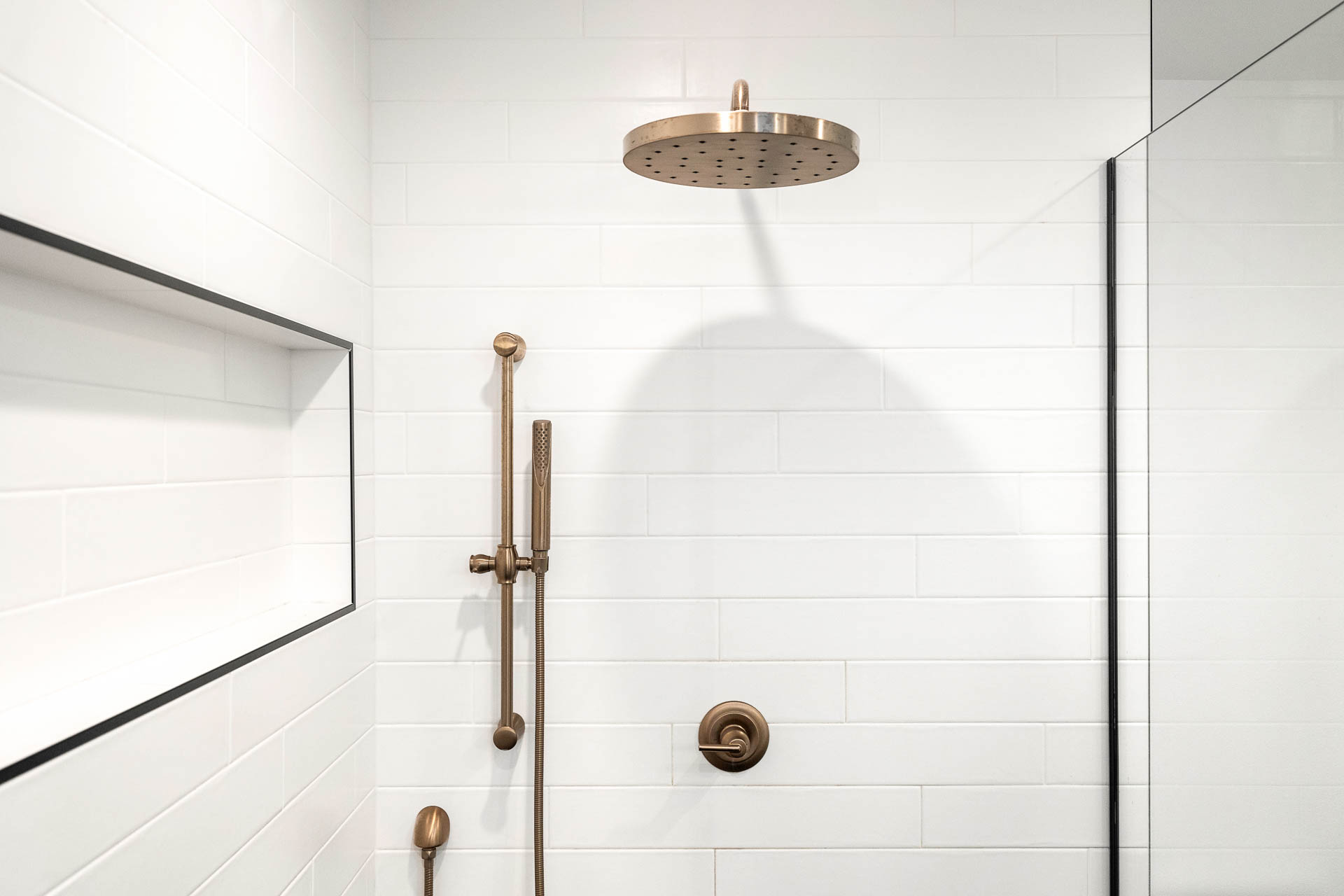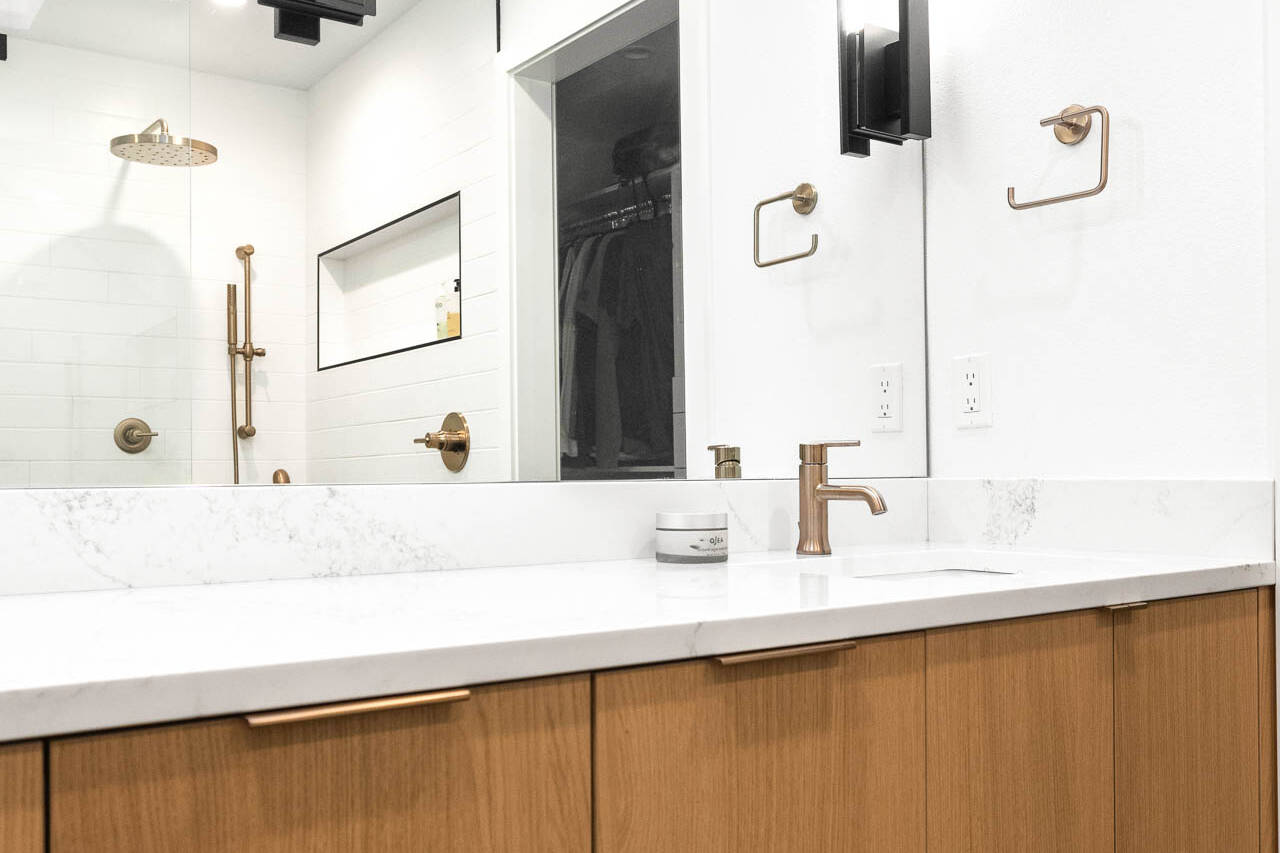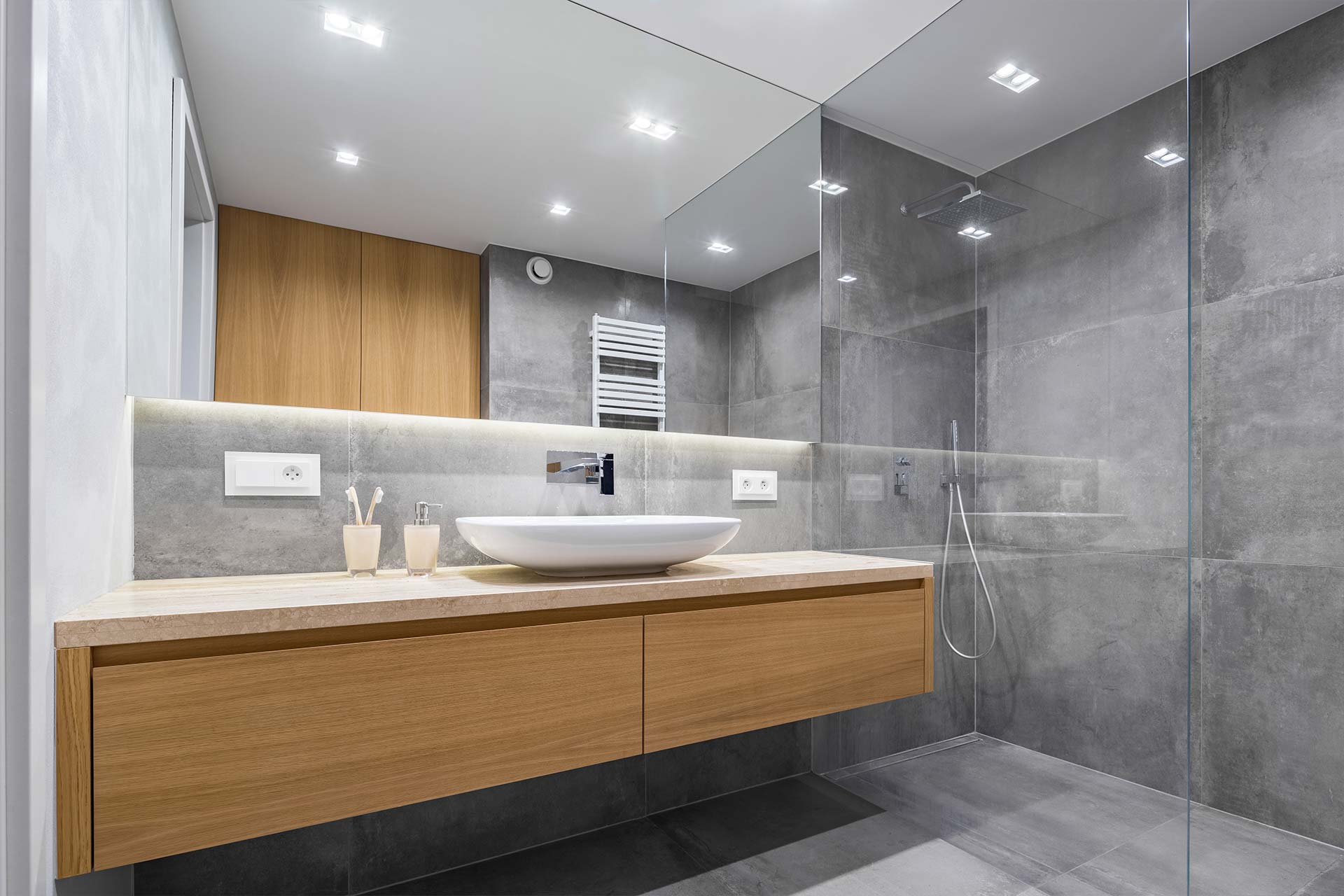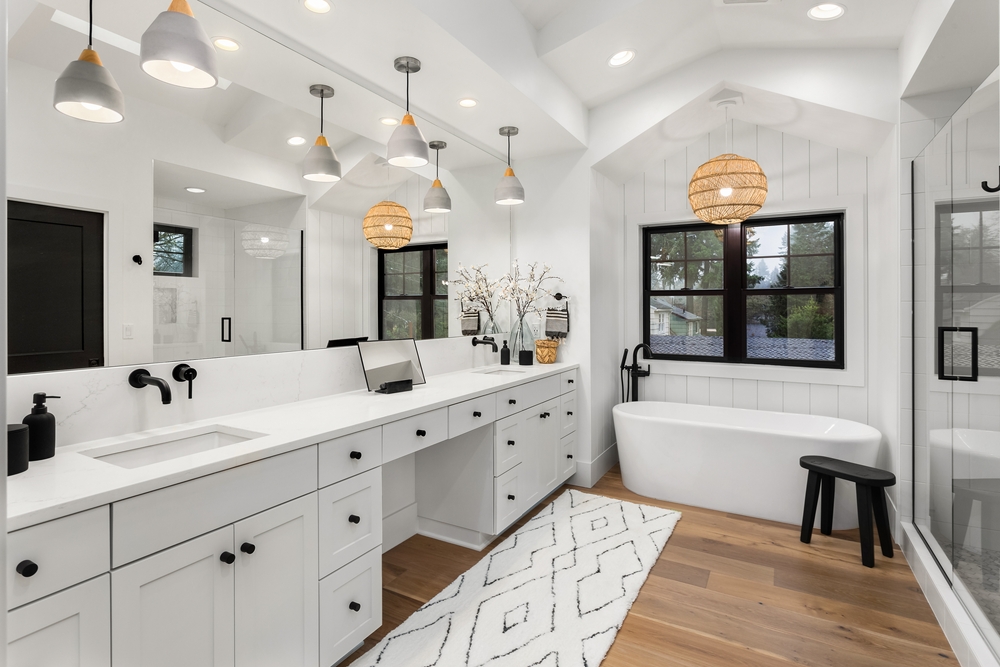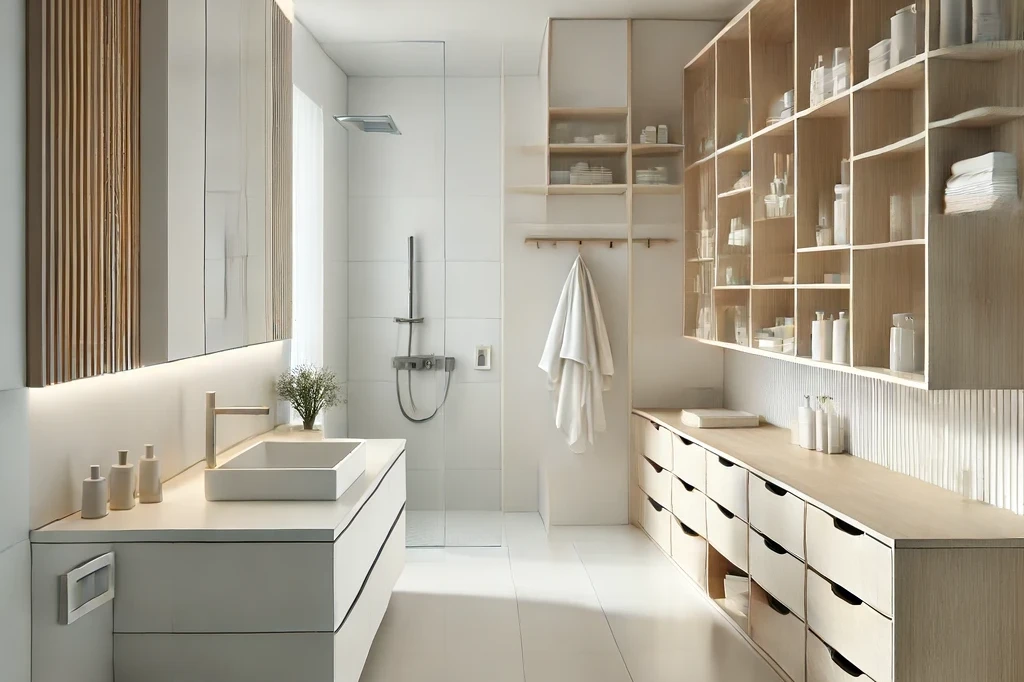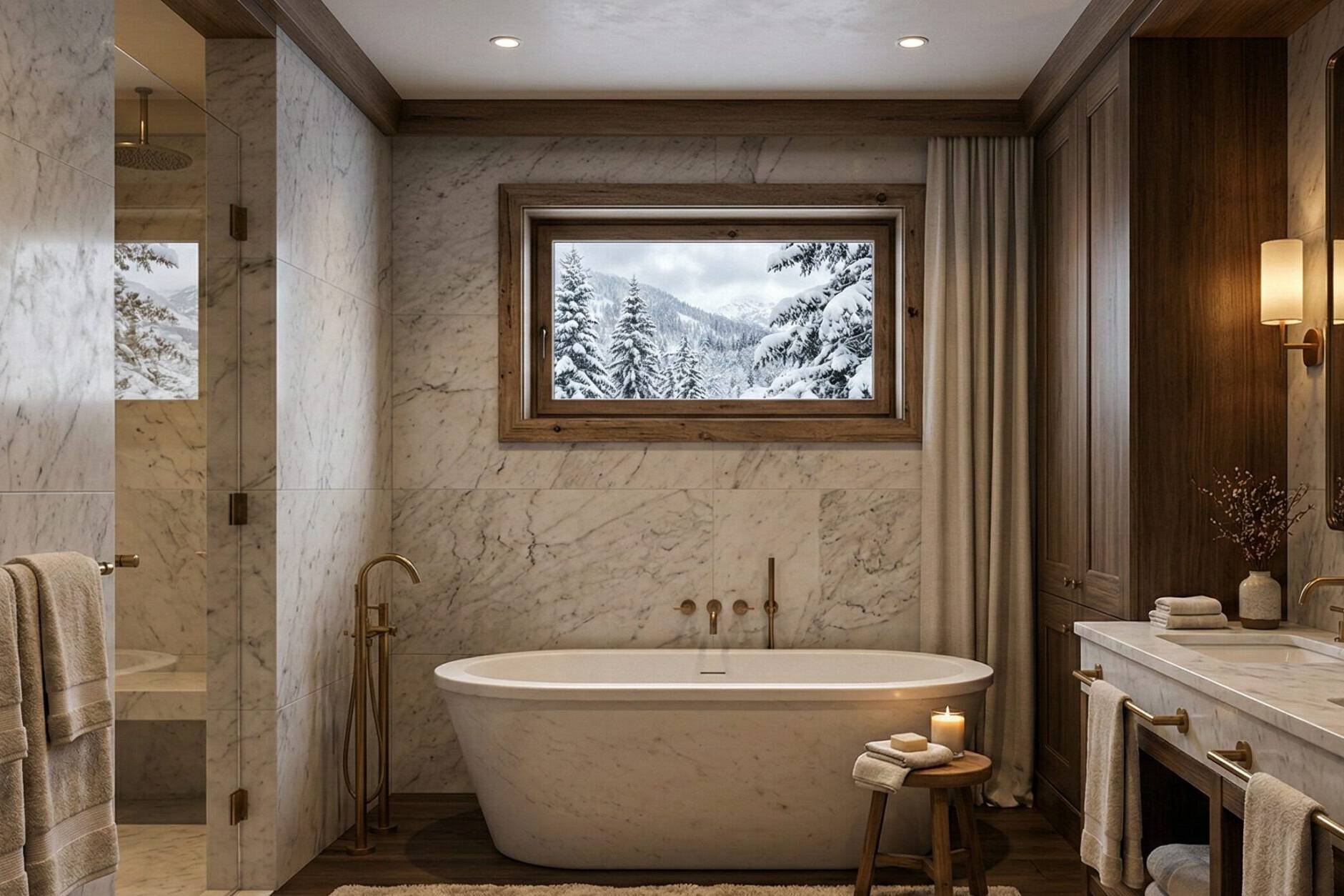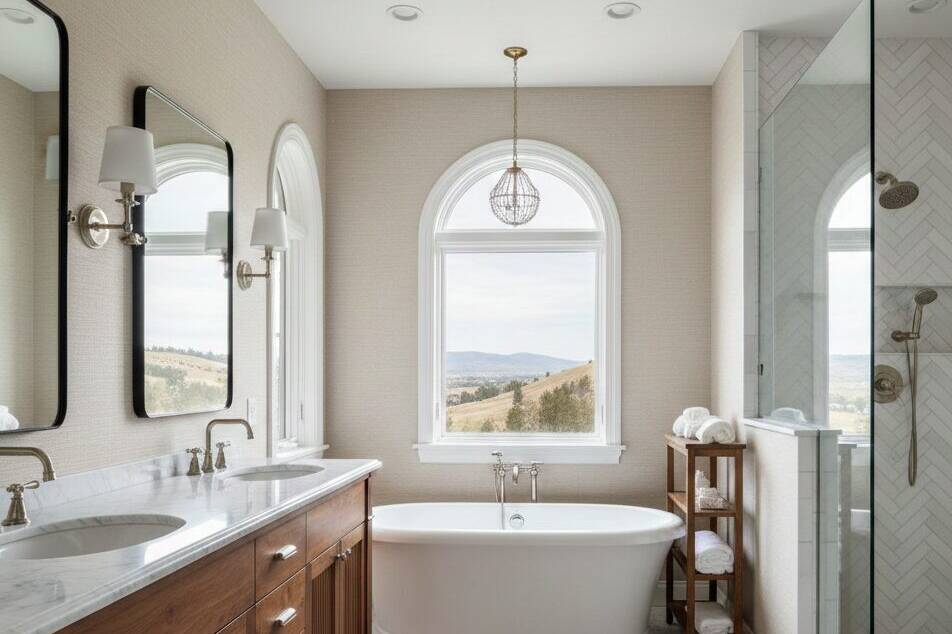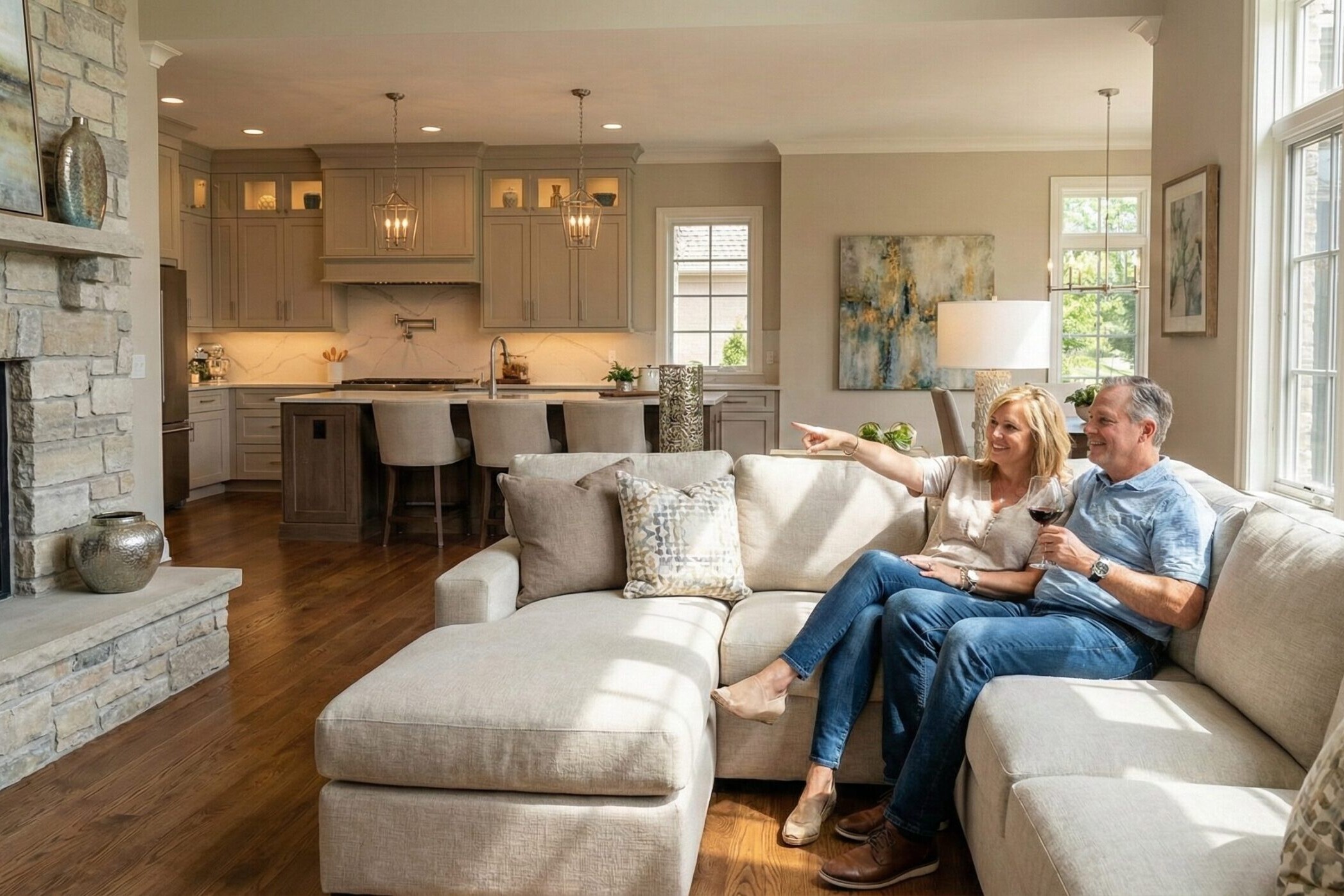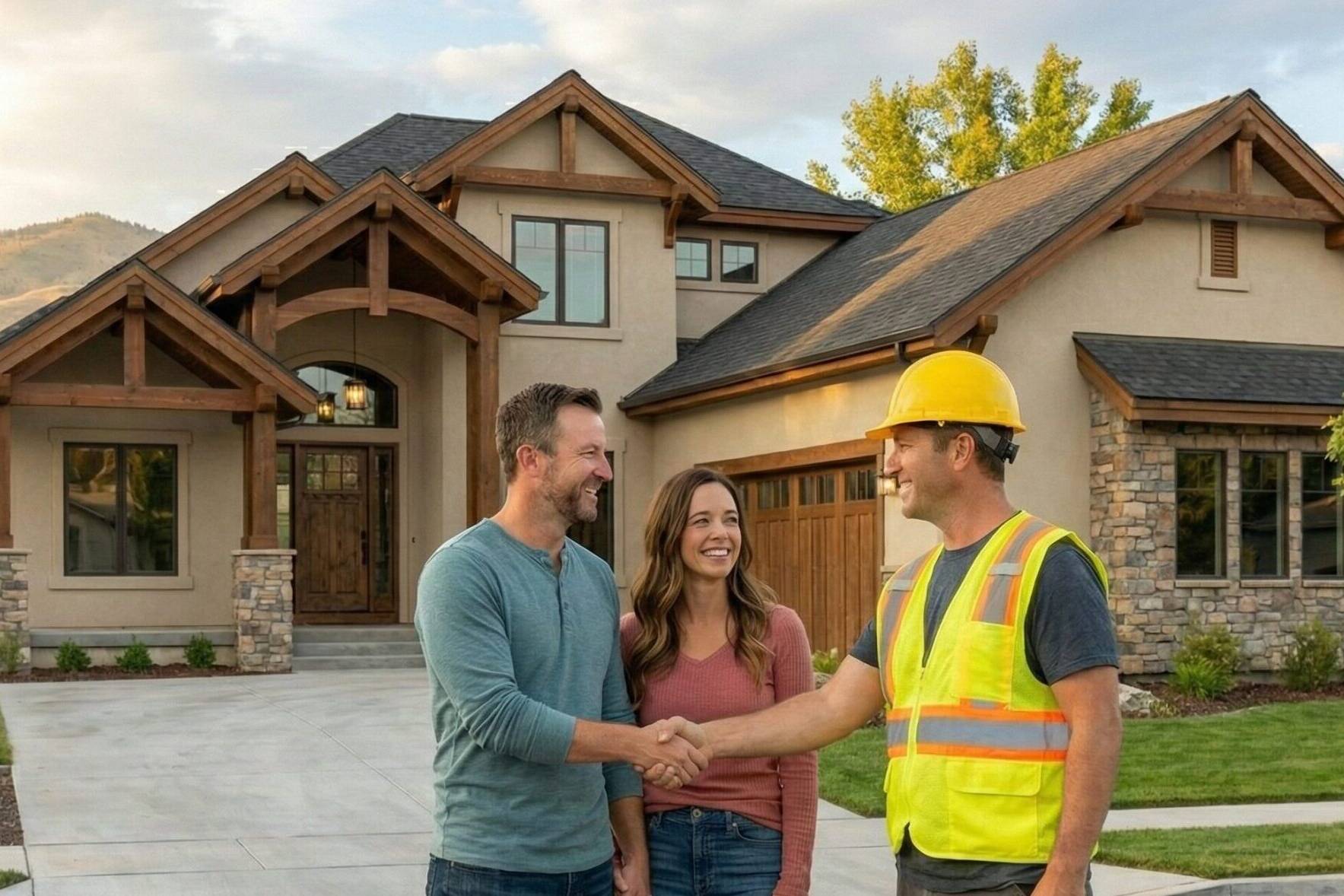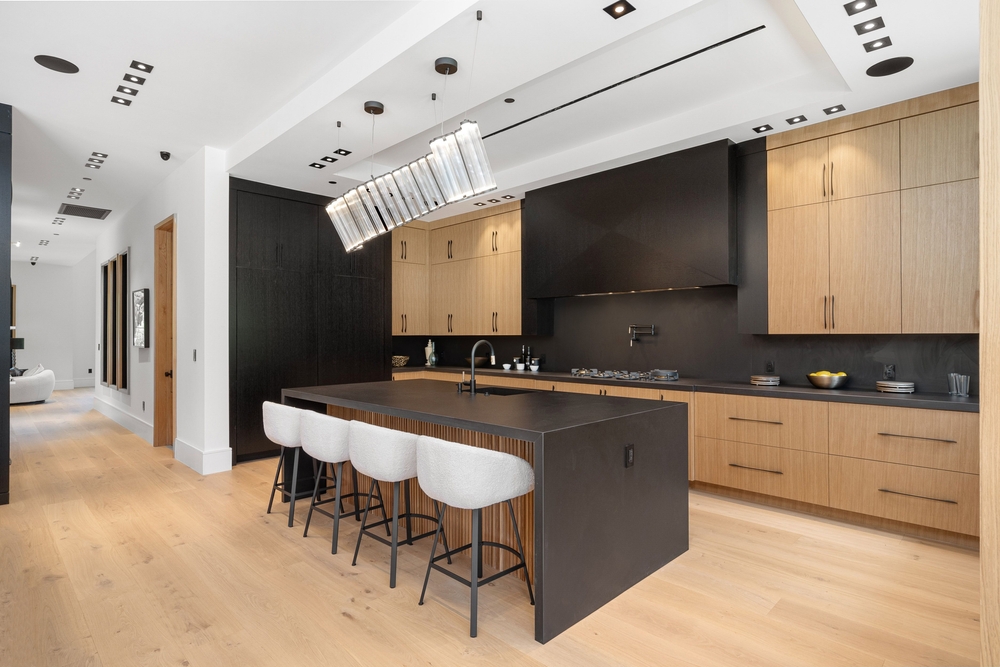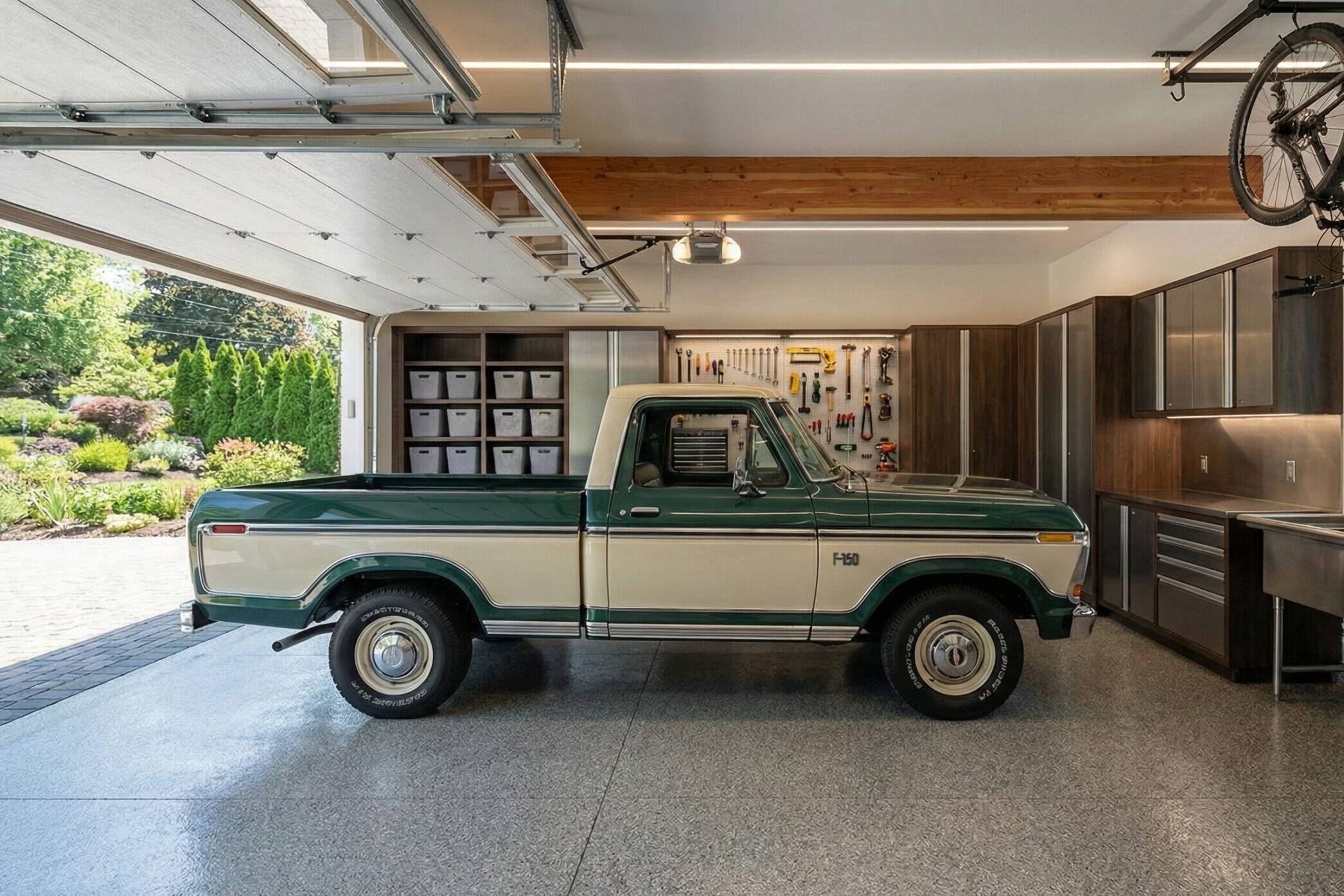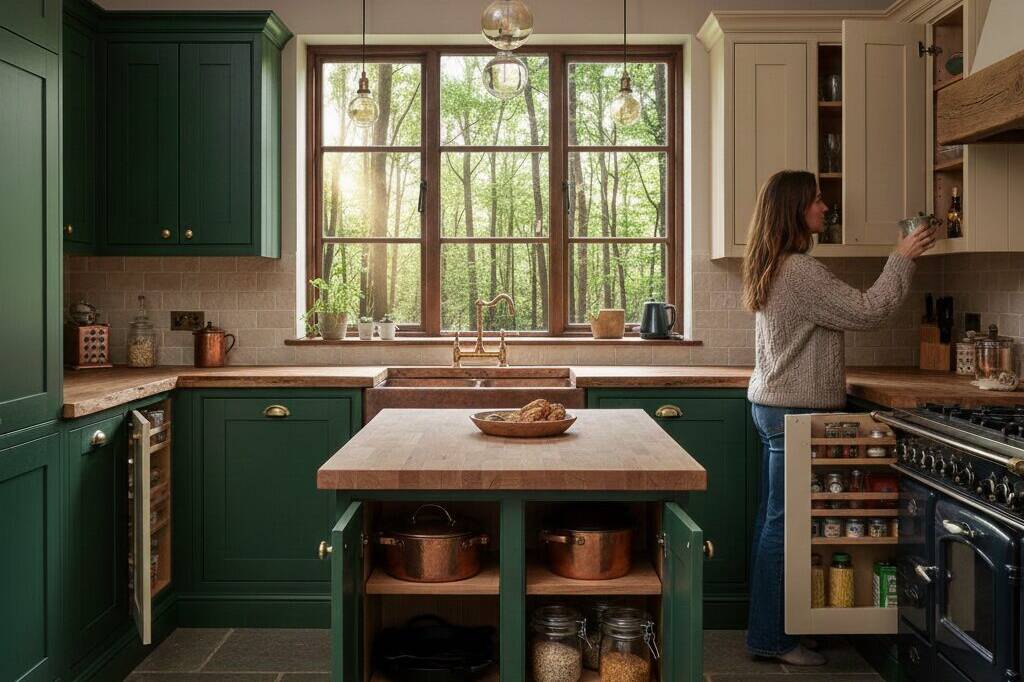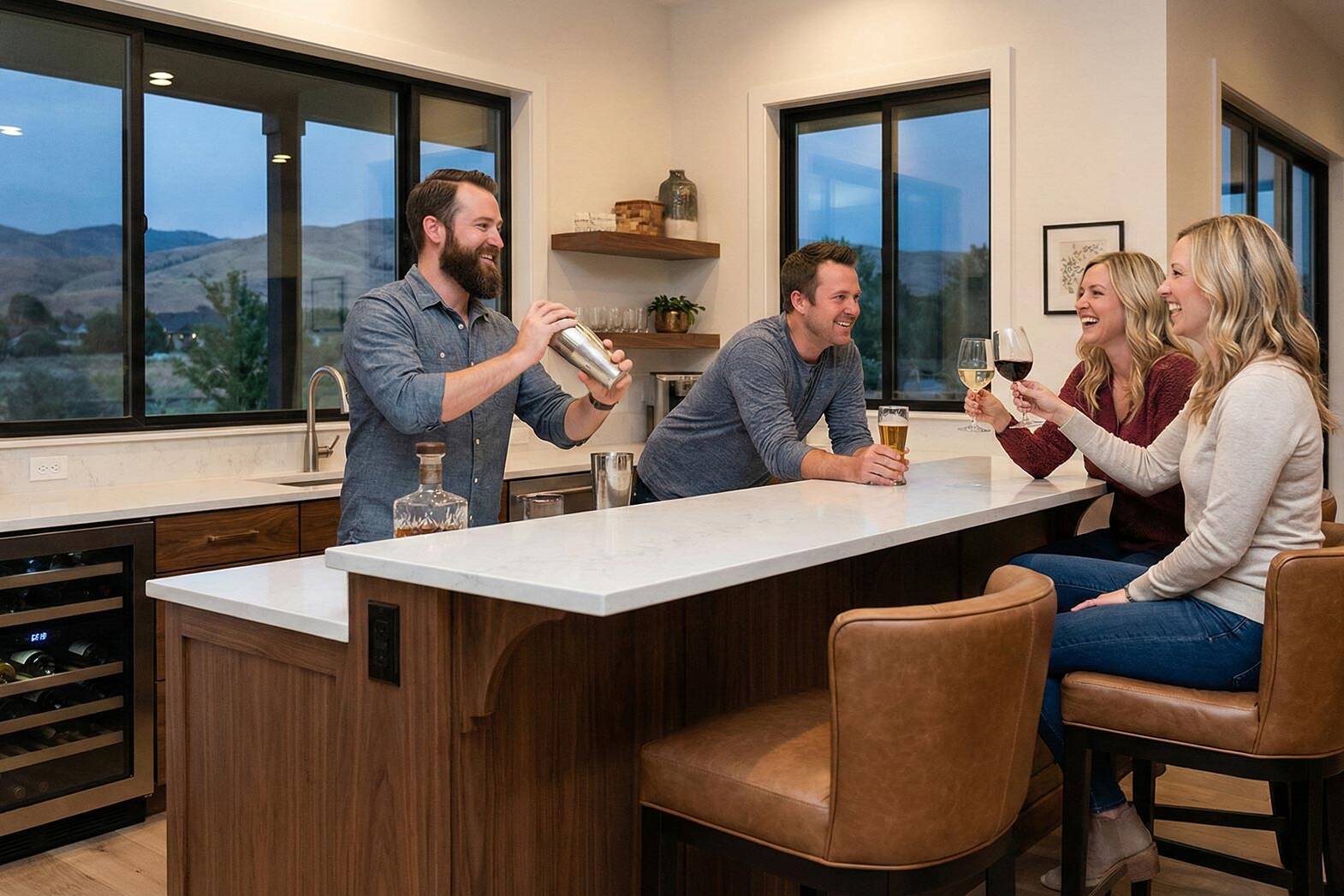Nowadays, Accessory Dwelling Units (ADUs) are becoming more popular because these units offer a range of benefits, including potential rental income, increased property value, and flexibility to accommodate various needs.
However, with several types of ADUs available, choosing the right one for your home is difficult. The type you select will impact design, functionality, privacy, cost, and the overall value added to your property.
In this blog, we will explore 3 main types of ADUs and discuss their pros and cons so you can have the overall knowledge to choose the right one that aligns with your goals and lifestyle.
2. Attached ADU
An attached ADU is an addition to a house’s existing foundational structure of a house, connecting to the primary residence by sharing at least one wall. It can be added to the side or back of the house.

(Source:https://www.deschutes.org/cd/page/research-checklist-accessory-dwelling-unit-adu)
Pros and Cons of Attached ADU
Pros:
- Ideal for small lots: Attached ADUs are great for properties with limited space, allowing you to build vertically or expand from the side or rear.
- Cost-Effective: They are generally more affordable since they utilize the existing foundation and sharing utilities, leading to significant savings.
- Simpler permitting process: In areas with strict regulations, attached ADUs can be easier to permit. By avoiding new construction, you may be able to navigate less complex permitting processes.
Cons:
- Limited design flexibility: The need to match the existing home’s design can restrict creativity in layout and appearance.
- Reduced privacy: Sharing a wall can reduce privacy for both ADU residents and those in the main home, which may be a concern for rentals or family members wanting more independence.
- Construction disruption: Building an attached ADU can disrupt homeowners, as construction occurs close to the main living areas.
2. Detached ADU
A detached ADU is a standalone building from the main house, providing an independent living space on the same lot.
These are often the most popular choice because they provide great privacy and self-contained living facilities. Detached ADUs are especially suitable for homeowners with larger properties.

(Source:https://www.deschutes.org/cd/page/research-checklist-accessory-dwelling-unit-adu)
Pros and Cons of Detached ADU
Pros:
- Privacy and independence: The separation from the main house allows homeowners to enjoy a quieter lifestyle and better living conditions.
- Design flexibility: You have complete freedom to design the ADU since you’re starting from scratch.
- Increased property value: Detached ADUs can significantly boost property value, often more than attached units. They are seen as separate homes, which can attract higher rents and appeal to more buyers.
Cons:
- Higher construction costs: Detached ADUs are built from scratch, requiring a full new structure, including separate bathrooms and kitchens with their own plumbing and electrical systems.
- Requires more space: Detached ADUs need more land, so they may not be practical for smaller lots.
- Complex permitting process: You may encounter extra permitting and approval processes based on your location and zoning laws.
3. Conversion ADU
Conversion ADU is converting an existing space into an ADU. Garages and basements are popular choices for these conversion projects.
This type of ADU can be designed to match the existing home and often requires less construction compared to detached or attached ADUs.
Pros and Cons of Conversion ADU
Pros:
- Cost-Effective: Converting an existing space is generally cheaper than building a new one, as it utilizes the existing foundation and infrastructure.
- Less construction time: Conversion projects typically take less time to complete compared to new builds, allowing homeowners to use the space sooner.
- Space-Preserving: Since conversion ADUs utilize existing structures, they help preserve outdoor space, maintaining the size of backyards or gardens.
Cons:
- Structural issues: The condition of the home or garage may require additional construction to make it suitable for living.
- Construction disruption: Construction is underway in the main house so it can disrupt homeowners, affecting daily routines.
- Zoning and permitting challenges: Depending on local regulations, converting a space into an ADU may involve navigating complex zoning laws and obtaining necessary permits.
So which type of ADUs is the right choice for you?
Each type of ADU has its own advantages and drawbacks. To choose the right type for your house, you need to consider various factors, including your needs, budget, property layout, privacy requirements, future plans, and local zoning regulations.
If you’re in Boise and looking for a professional to help you make the best decision, reach out to Freimark Construction.
We will guide you through the entire process, from design to permitting, ensuring a smooth and successful project.
Freimark Construction
Ready to transform your bathroom?
Contact Freimark Construction, Boise’s trusted remodeling experts, to start your project today!
Zach Freimark
Zach is the founder of Freimark Construction with 15+ years of experience in construction. He brings expertise across multiple trades and high-end remodels, focusing on unique design details and quality craftsmanship to ensure every project exceeds client expectations.

